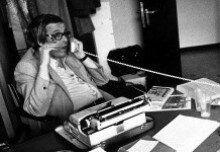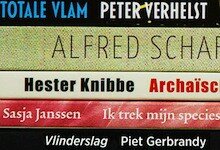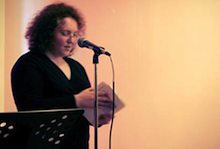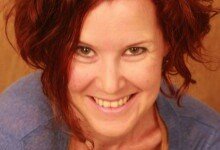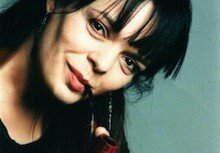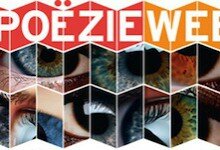Leaving poetry for life, or not?
Lyor Shternberg’s beautiful fourth book centers on the writer’s search for a new path. At first this is portrayed as an attempt “to leave poetry,” a conscious rejection of what Shternberg calls “the dead side of the equation” – the living side which trickles onto paper – in favour of a “life to be lived”.
In a tone clearly reminiscent of Meir Wiesletier, pure rage is replaced by a kind of verbal nakedness in which longing, games, hunger for touch and for beauty are expressed here much more freely than in Shternberg’s previous books. [ . . . ] In his latest, he allows himself to abandon his earlier [ . . . ] voice in some poems, giving himself over to “stunning joy”, preferring life and all its lights to darkness.
This turnaround – as may be seen in the two poems which wrap the book in a kind of father–child embrace – is apparently the direct result of the birth of his daughter, his first offspring not produced on paper but rather in the real world. This definitive fact [ . . . ] has liberated a fierce longing for flesh, sea, rain, trees, a material landscape and the sentient body. But the page, as an earlier poem prophesied, has not disappeared. In fact in what are, in my opinion, the most beautiful poems in the book, Shternberg reverts to his prior voice. [ . . . ] This is particularly apparent in the last part of the book and in some interesting prose poems, including three wonderful memoirs about his ongoing encounter with “Professor Tolkien” included in the section titled ‘The Words’.
Throughout the book, the desire to dive into life is nonetheless haunted by an inner void, a dark and threatening space, nesting alongside love and a sense of renewal and plenitude. The emptiness is at times felt directly and sometimes hinted at via some sort of metaphorical prism, such as his frequent evocations of a writhing snake.
[ . . . ]
An obvious reason for this void is a memory of a child stillborn to his parents during the Arab-Israeli war in October 1973, revealed in ‘42 Katzenelson Street’: “black Yom Kippur nights:/ the firstborn six years old. Then the girl born without breath.”
And in the same poem: “Lost tenderness, my sister, the finest shadow/ stuck to our bodies like netting./ The crocodile of war crawled up to your navel,/ and consumed everything. Leaving behind empty lines –/ your life.” The core of nothingness, perhaps originating with the dead sister, accompanies the speaker’s gaze and actions and appears behind every door opening onto the world. In this context descriptions of life as silent bones (such as the lions of the cathedral and wooden benches in the Musée Loudève in France) and as plants (like the description of the deep voices of poplar trees) stand out particularly.
Sometimes vegetation springs from a live limb, and sometimes hybrid creatures which are not vegetable but not entirely animal either, emerge: “It’s time you articulate a definite stride towards life,/ lay the pure egg of yourself in the warm light.” A desire to break out of the cycle of words and death hovers over them.
[ . . . ]
Shternberg’s memories are both wonderful and painful; the smells and the sights, as though healed of the lust for touch and the terror of touch, return the speaker for brief moments to his childhood, the child of his parents, and then to his own parenthood and his new daughter. A daydream as he dozes beside her ends the book in ‘My Daughter, in the Back of the Car’:
into a lazy sleep en route. A quick dream exposes a widening
torrent, the flat land on its banks breathes gold and noon,
an inner voice orders me to take off all my clothes, to bathe in
these never ending
waters, without knowing whether or how
I’ll make it to the other shore.
Uri Hollander is a poet, translator, musican, literary critic and journalist; he directs the annual Metulla Poetry Festival in Israel.


